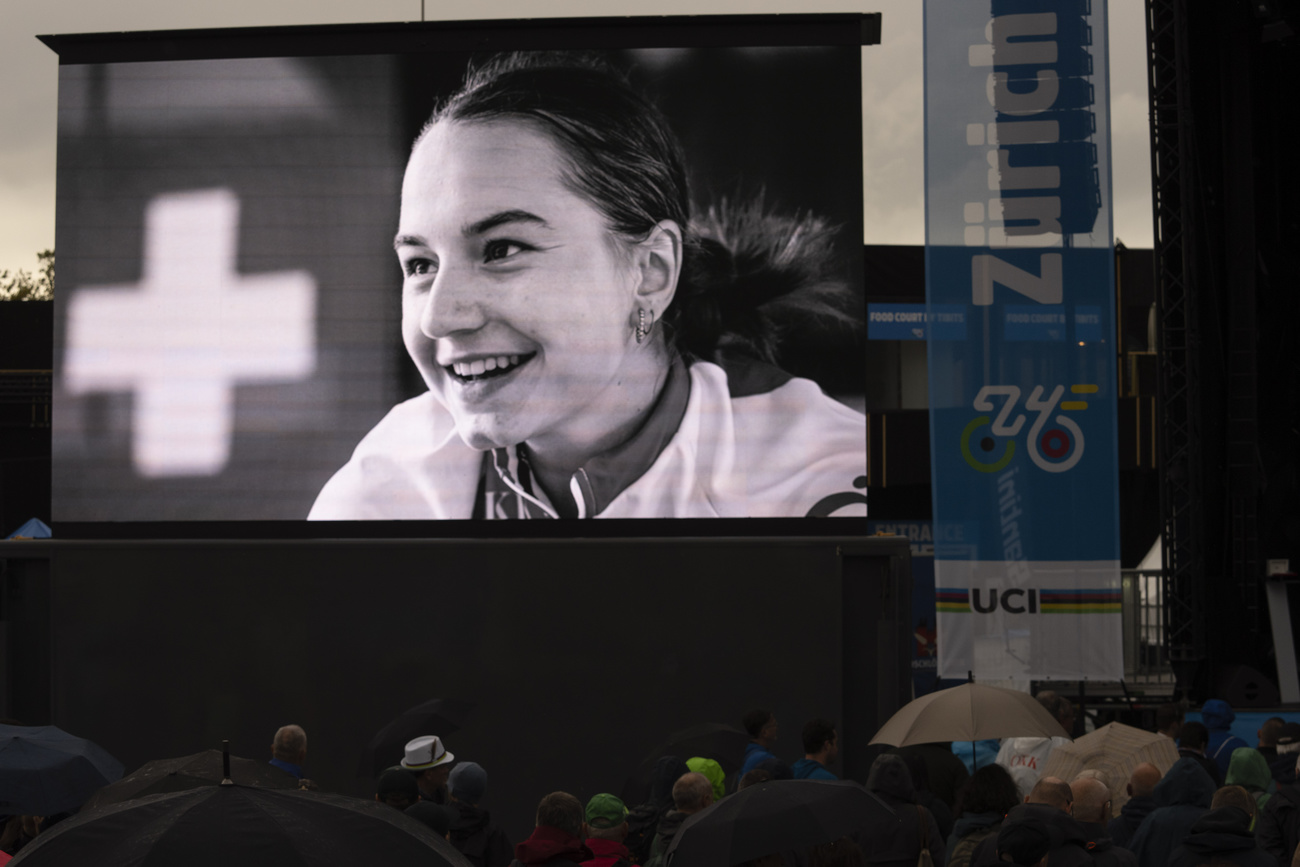
Zurich cycling organisers to pressure UCI to address fatal accidents

Three days after the end of the Road and Para-cycling World Championships in Zurich, the local organising committee has drawn up an initial assessment. Muriel Furrer's fatal accident was inevitably mentioned.
From the organisers’ point of view, public interest was high: despite the bad weather, 1.2 million people attended the nine days of competition, more than the 850,000 spectators that were initially expected.
+ Get the most important news from Switzerland in your inbox
Even during the week, around 30,000 people regularly followed the races. The peak was reached last Sunday during the men’s road race, with an estimated 800,000 spectators lining the course. The general manager of the project, Daniel Rupf, spoke of a “great cycling spectacle”. The world championships have also established new criteria for inclusion, the committee said.
Putting pressure on the UCI
But these world championships will forever be associated with the tragic death of the young Swiss cyclist Muriel Furrer. The organisers have given no further information on the circumstances of the accident. The investigation is in the hands of the public prosecutor. “We provide information and contacts; we are the link with the UCI,” said Olivier Senn, the world championships’ sports director, referring to the world cycling body.

More
Switzerland mourns death of cyclist at World Championships
The organisers nevertheless spoke about the accident. Senn confirmed that race management had not had access to the riders’ GPS data during the races. The subject of GPS tracking has recently been in the news, as Furrer had apparently remained at the scene of the accident for a long time without being discovered after her fall.
GPS tracking a ‘perfect solution’
On the subject of safety, Senn said: “There have definitely been too many deaths recently. We’ve let the UCI know that we want this discussion to be intensified. We are going to put pressure on them to do something about it.”
In terms of safety, it’s a question of learning lessons from these accidents for the future, said Senn. “In retrospect, GPS tracking would have been a perfect solution,” he said.
Translated from French with DeepL/gw
This news story has been written and carefully fact-checked by an external editorial team. At SWI swissinfo.ch we select the most relevant news for an international audience and use automatic translation tools such as DeepL to translate it into English. Providing you with automatically translated news gives us the time to write more in-depth articles.
If you want to know more about how we work, have a look here, if you want to learn more about how we use technology, click here, and if you have feedback on this news story please write to english@swissinfo.ch.

In compliance with the JTI standards
More: SWI swissinfo.ch certified by the Journalism Trust Initiative













































You can find an overview of ongoing debates with our journalists here . Please join us!
If you want to start a conversation about a topic raised in this article or want to report factual errors, email us at english@swissinfo.ch.